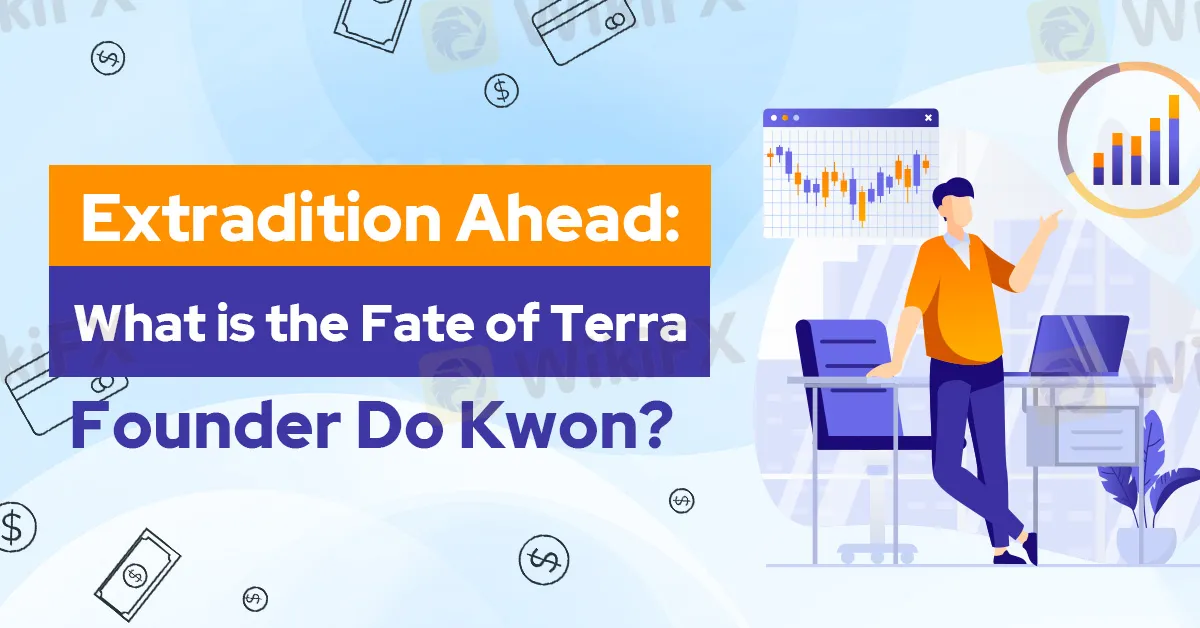简体中文
繁體中文
English
Pусский
日本語
ภาษาไทย
Tiếng Việt
Bahasa Indonesia
Español
हिन्दी
Filippiiniläinen
Français
Deutsch
Português
Türkçe
한국어
العربية
Extradition Ahead: What is the Fate of Terra Founder Do Kwon?
Abstract:The extradition proceedings of crypto entrepreneur Do Kwon, facing fraud allegations across the United States and South Korea, escalate as Montenegro's High Court approves, marking a pivotal moment in this transnational legal battle.

Montenegro‘s High Court has given the go-ahead for the extradition of cryptocurrency entrepreneur Do Kwon, embroiled in fraud allegations in the United States and South Korea. This pivotal decision, disclosed on the court's website, now awaits the country’s justice minister to determine the destination for Kwons extradition.
Do Kwon, recognized for his involvement in the Terraform Labs affair, encountered legal entanglements due to the use of falsified passports. Arrested alongside an associate with counterfeit travel documents, Kwon received a four-month prison sentence from Montenegrin authorities. The discovery of Belgian passports and electronic devices further complicated his legal standing.
This development arrives on the heels of the Higher Court of Podgorica affirming a previous verdict from June, deeming the four-month imprisonment as fitting punishment for Kwons transgression.

Kwon, the Terraform Labs founder, and his colleague Han Chang-Joon were apprehended in Montenegro after attempting to depart using fake Costa Rican passports. During testimony, Kwon asserted belief in the legitimacy of the passports.
Facing allegations related to the collapse of terraUSD (UST) stablecoin and the Terra ecosystem, Kwon had been sought by various law enforcement agencies, regulators, and Interpol.
Montenegro, situated south of Serbia, emerged as a potential location for Kwon, wanted in his home country for charges involving capital market manipulation. Despite his denial of wrongdoing, Kwon, in hiding since May 2022, argues that capital-market laws dont extend to crypto assets.
While Kwon has agreed to extradition to South Korea through an expedited process, the decision ultimately lies with Montenegros justice minister due to multiple countries seeking his extradition.
Kwon's legal team has yet to address the U.S. charges. However, Terraform Labs spokesperson intends to challenge the U.S. allegations, labeling them as “misguided” and “deeply flawed.”
Currently serving time at Spuž prison near Podgorica, Kwon awaits final word on his extradition, slated to occur after completing his sentence for the forged document offenses.
This unfolding narrative stems from the monumental $40 billion collapse of the Terra ecosystem in May 2022, causing substantial financial losses and reverberations across the cryptocurrency sphere. The legal outcome of this extradition could establish a precedent in handling transnational cryptocurrency offenses under international law.

Disclaimer:
The views in this article only represent the author's personal views, and do not constitute investment advice on this platform. This platform does not guarantee the accuracy, completeness and timeliness of the information in the article, and will not be liable for any loss caused by the use of or reliance on the information in the article.
Read more

Bybit Shuts Down NFT Marketplace Amid Crypto Market Downturn
Bybit announces the closure of its NFT marketplace, citing efforts to streamline offerings. Discover the latest trends in the declining NFT market and its shift to utility-based growth.

Galaxy Digital Settles $200M in Luna Token Manipulation Case
Galaxy Digital pays $200M to settle Luna token manipulation probe by NY regulators, linked to TerraUSD’s 2022 crash, impacting crypto market stability.

Vanuatu Passes VASP Act to Regulate Crypto and Digital Assets
Vanuatu's new VASP Act regulates crypto businesses, enforcing strict licensing, AML/CFT compliance, and investor protections.

Blockchain Decentralization: Empowering a Trustless Future
In recent years, blockchain technology has rapidly evolved from a niche innovation behind Bitcoin into a transformative force across industries. At its core, blockchain decentralization refers to the distribution of authority and decision-making away from a central entity and into the hands of a distributed network of participants. This shift redefines how data is stored and verified and paves the way for trustless, transparent, and resilient systems that challenge traditional centralized models.
WikiFX Broker
Latest News
TradingView Brings Live Market Charts to Telegram Users with New Mini App
Trump tariffs: How will India navigate a world on the brink of a trade war?
Interactive Brokers Launches Forecast Contracts in Canada for Market Predictions
Authorities Alert: MAS Impersonation Scam Hits Singapore
Stocks fall again as Trump tariff jitters continue
INFINOX Partners with Acelerador Racing for Porsche Cup Brazil 2025
Regulatory Failures Lead to $150,000 Fine for Thurston Springer
April Forex Trends: EUR/USD, GBP/USD, USD/JPY, AUD/USD, USD/CAD Insights
March Oil Production Declines: How Is the Market Reacting?
Georgia Man Charged in Danbury Kidnapping and Crypto Extortion Plot
Currency Calculator







